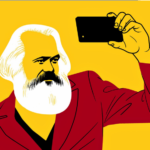
Praise for Bill Gates
Share This :
Now that the president of Microsoft has announced his retirement from managing Microsoft to concentrate on his eponymous foundation, it is perhaps the best moment to engage in something as politically incorrect as highlighting his enormous contribution, allowing me to write this article and you to read it –among many other things.
Quite a while back now, Bill Gates and his partner Paul Allen had the idea that they could sell operating systems –at first, designed by other people– that would work on a particular computer architecture, created by IBM, but which (and this is the important part) any other manufacturer could imitate.
In principle, an operating system is nothing more than an intermediary between the computer and the programs we use. Over the years, many different operating systems have come and gone, from the simplest to the most complicated. Today, the most widely-used are versions of Microsoft Windows, Apple’s MacOS X and the almost infinite forms of Unix, mainly Linux. Nonetheless, until Gates and Allen had their idea, operating systems were usually linked to a machine model, and wouldn’t work on any other machine, even though there could be very similar versions on different types of computer. When Gates got IBM to allow him to license his MS-DOS operating system to other companies, he began slowly to travel to manufacturers to have them produce more affordable and powerful “IBM compatible” computers -in other words, computers that could run MS-DOS. For the user, they had one thing in common: they could run the same intermediary, the same operating system, which meant they could run the same programs.
After a few years enjoying an old Spectrum 48Kb, a small, black machine with a rubber keyboard, my family confronted the huge expense of acquiring one of these “compatible” computers. The computer was put together in the store where we bought it, using pieces from a variety of manufacturers. This now seems normal to us. What was normal back then, however, was selling the computer as a single piece, operating system included, like with my old Spectrum, and the practice continues with Apple computers.
Compatibility within a platform and its consequences are due to the entrepreneurial, more than technical, genius of Bill Gates. Its benefits have extended far beyond Microsoft’s robust balance sheet, as tends to happen. The technological race has led to competition among an endless group of manufacturers –who have generally benefited from it– and lowered the cost for components, allowing computers to shift from being a luxury available only to businesses and wealthy individual users to just another home appliance that any middle class family can afford, which, in turn, has popularized the Internet. It has given a few hackers the necessary tools to create Linux, a direct competitor to Microsoft Windows. And it even made it possible for Apple to access cheap hardware with which it can continue creating closed computers at a lower price. Capitalism is the way one person’s ideas can result in huge benefits accruing to both that particular individual and everyone else in society.



